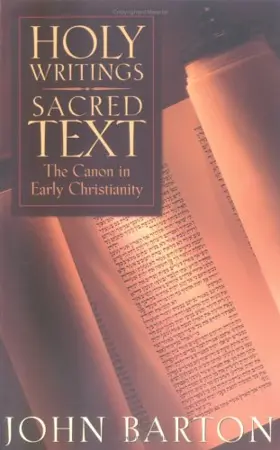

Holy Writings, Sacred Text: The Canon of Early Christianity
Pages
224
Publisher
Westminster John Knox
Published
1/1/1997
ISBN-13
9780664257781
Reviews
An important historical survey of the idea and definition of the biblical canon.
[Full Review]
Louisville: Westminster John Knox Press, 1997. Pp. xiv + 210, Paperback, $18.00, ISBN 066425778X. Charles H. Cosgrove Northern Baptist Theological Seminary Lombard, IL 60148 This is not a comprehensive study of the formation of the Christian Bible but an insightful exploration of how the church of the first several centuries understood its authoritative writings as scripture and canon. In Chapter 1, "The Origins of the Canon: An Imaginary Problem?," Barton argues that much disagreement about when the canon emerged is due to conflicting uses of the term "canon." It is especially important to be clear whether by canonization one means growth or selection or both. The story of the canon is really two stories: a story of "the growth and acceptance of various Christian writings as possessing authority for the nascent Christian Church, alongside and in some relation to the Scriptures of Judaism (not precisely defined)" and a story of "Christian attempts to list and define which books should count as Scripture" (p. 27). These are independent stories, not successive steps in a linear canonization process. Barton draws considerably on Franz Stuhlhofer's statistics showing that most Christian writers from the Apostolic Fathers on cited a core of Christian writings–the Synoptics, John, and the major Pauline epistles–far more often than any other writings, including the Jewish scriptures. Thus, this core "mattered more" (p. 18) than even the Jewish scriptures to the church of this period. Over time this core was rarely disputed, but there was a gray area of less-frequently-cited books and a category of writings that were not accepted.
[Full Review]

